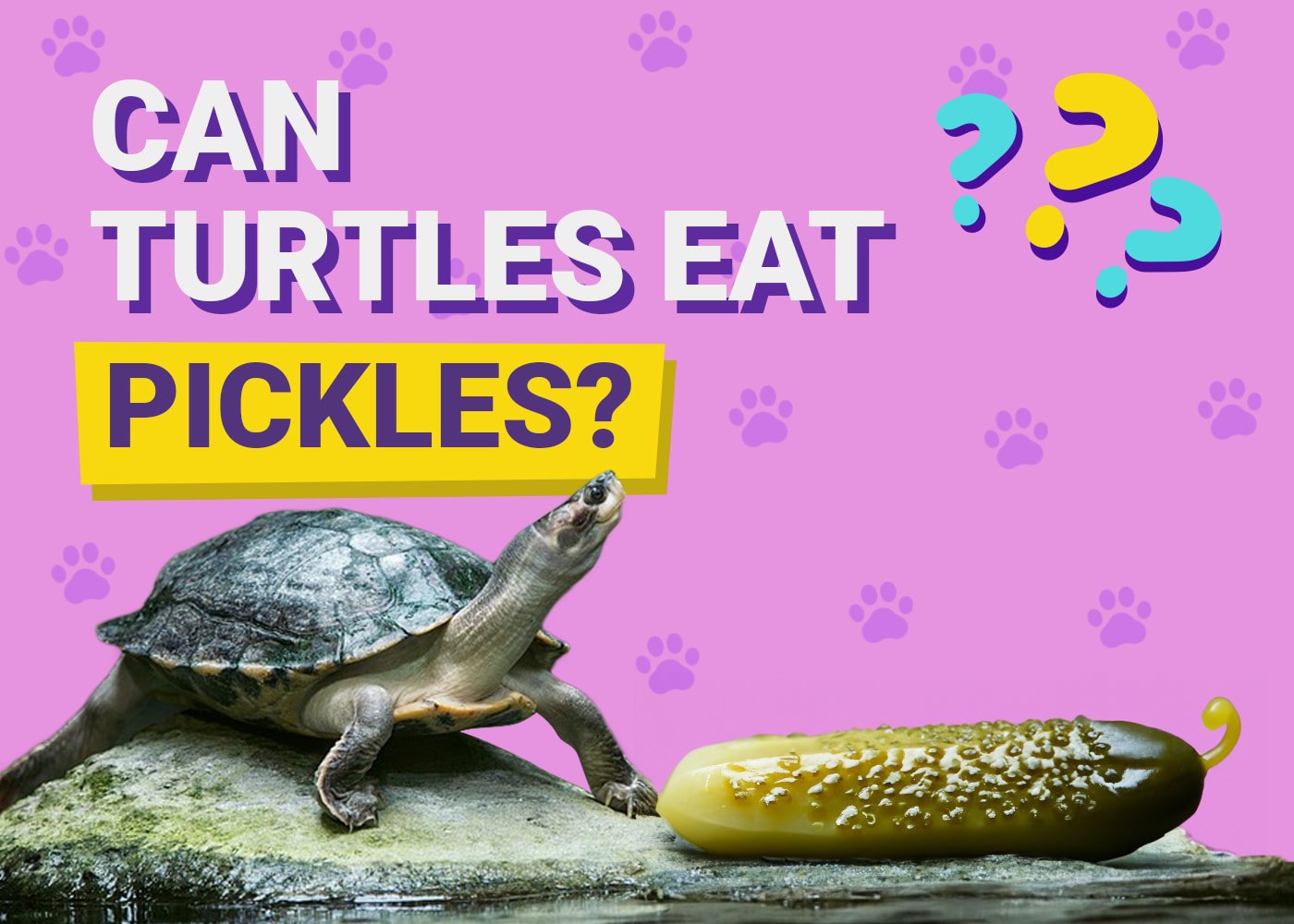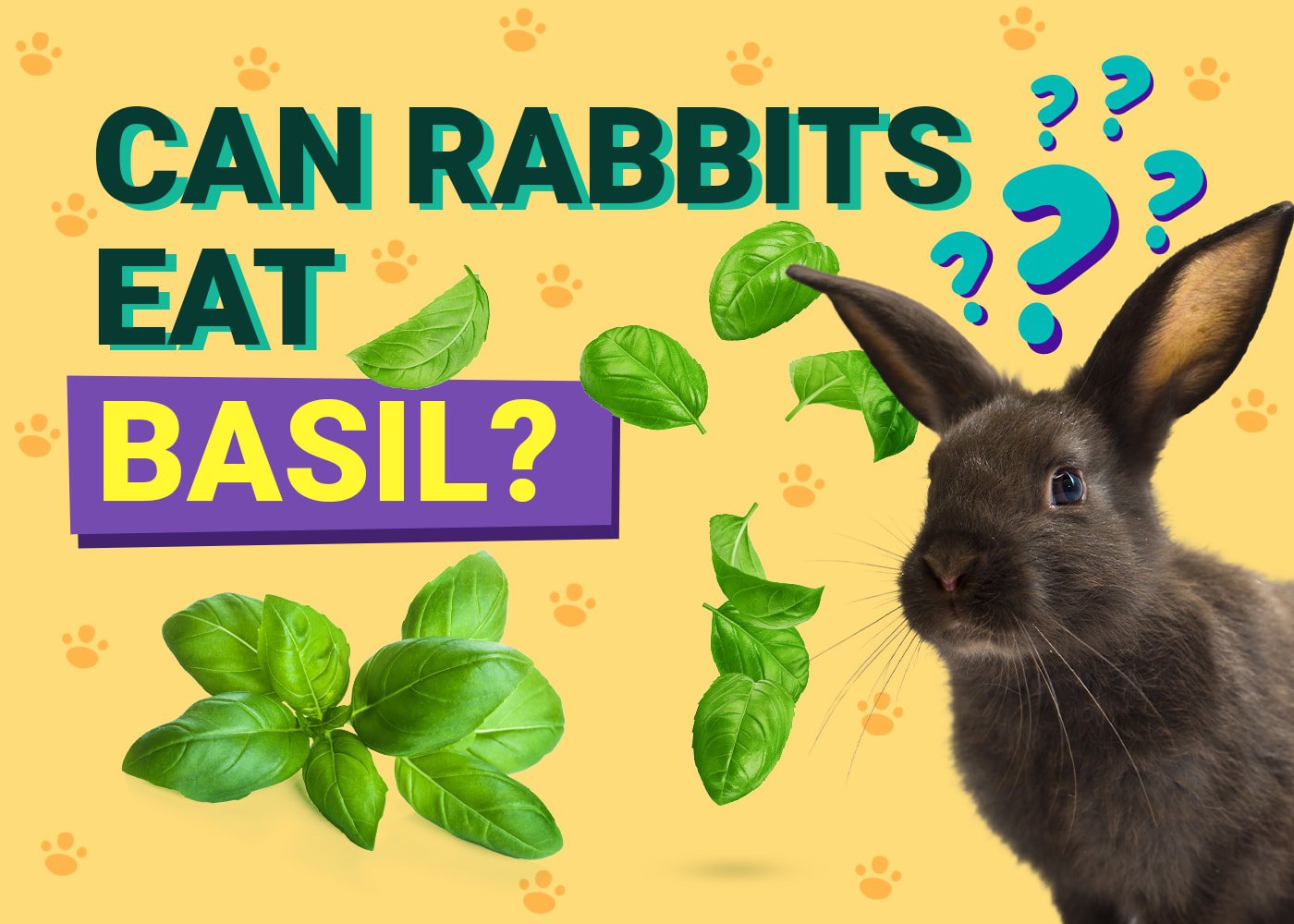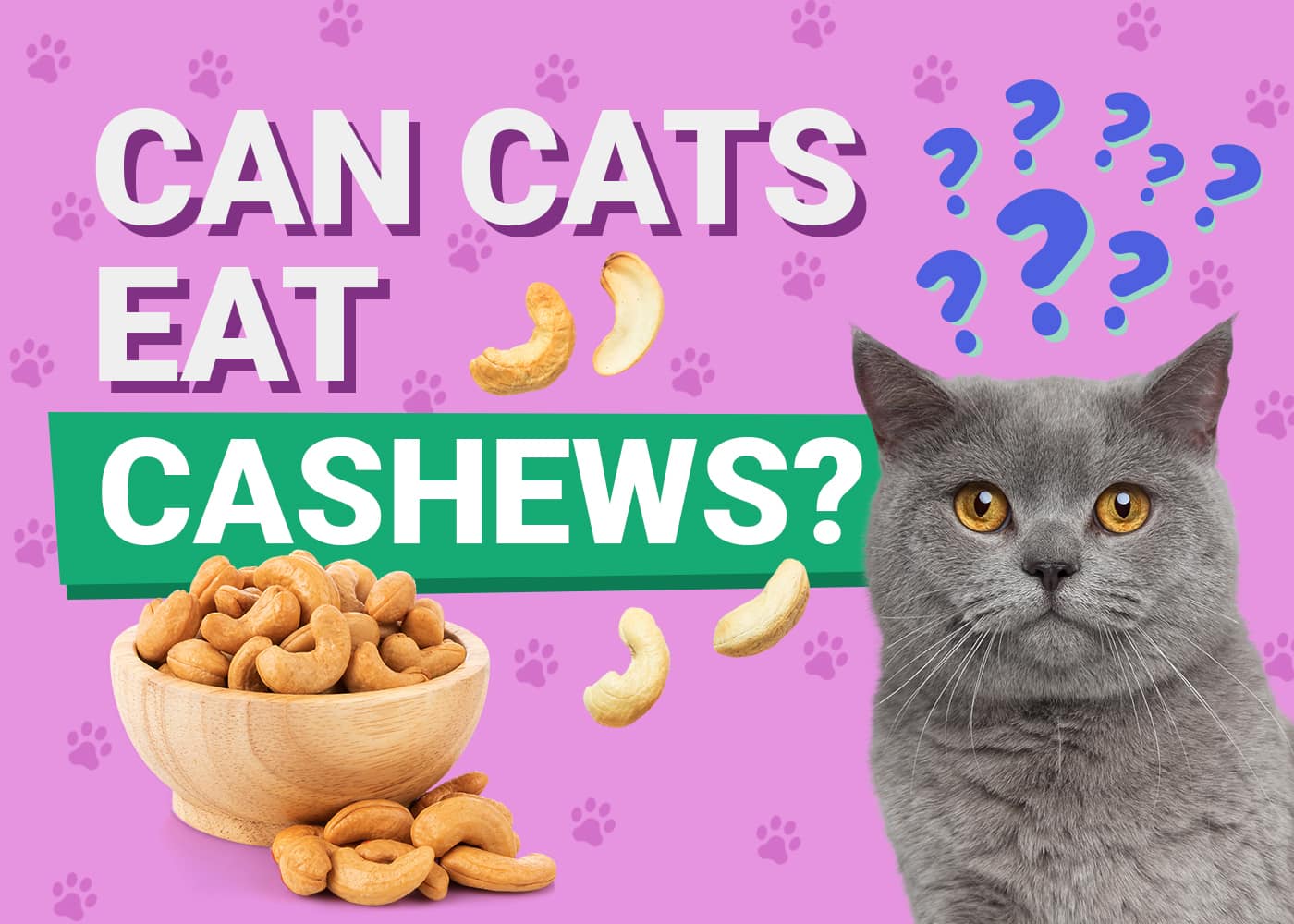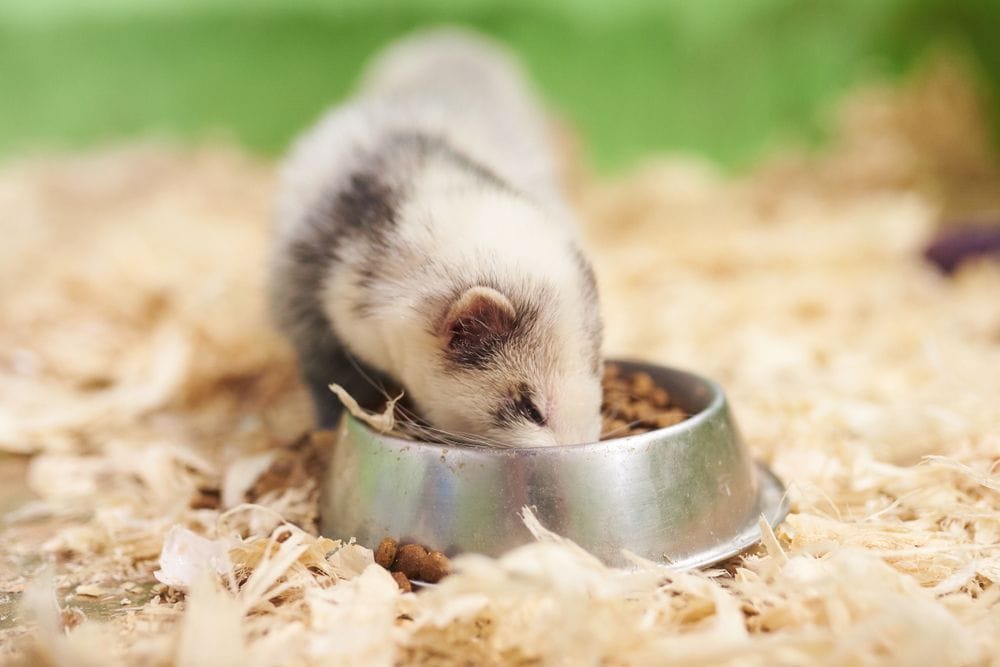VET APPROVED

The information is current and up-to-date in accordance with the latest veterinarian research.
Learn more »Most turtles are considered omnivores like humans, which means they can eat both plant and animal foods to meet their nutritional needs. There are many, however, that are entirely herbivorous. These reptiles tend to enjoy eating a wide variety of foods, which makes them interesting to feed as pets. But can turtles eat things like pickles?
The truth is that eating a tiny piece of a pickle shouldn’t be a problem. However, pickles should generally be avoided for your turtle. Here’s why!

Should Turtles Be Eating Pickles?
Pickles are typically cucumbers that have been soaked in vinegar, various pickling spices, and salt. However, the pickling spices contain a few things that aren’t an ideal part of a turtle’s diet. For example, salt, garlic, and onions are all things that their bodies are not equipped to effectively process.
Due to the n-propyl disulfide found in garlic and onions, these foods can cause digestion issues when consumed in small quantities and illness when eaten in large amounts1. The salt in pickling mixtures can also be a problem because turtles are simply not used to eating highly salted foods2. Therefore, adding extra salt to their diet can cause problems like diarrhea.
This is not to say that your turtle won’t enjoy a bit of a pickle you dropped on the floor at snack time, but pickles should not be a regular part of their diet. It is not recommended that you feed your turtle pickles.
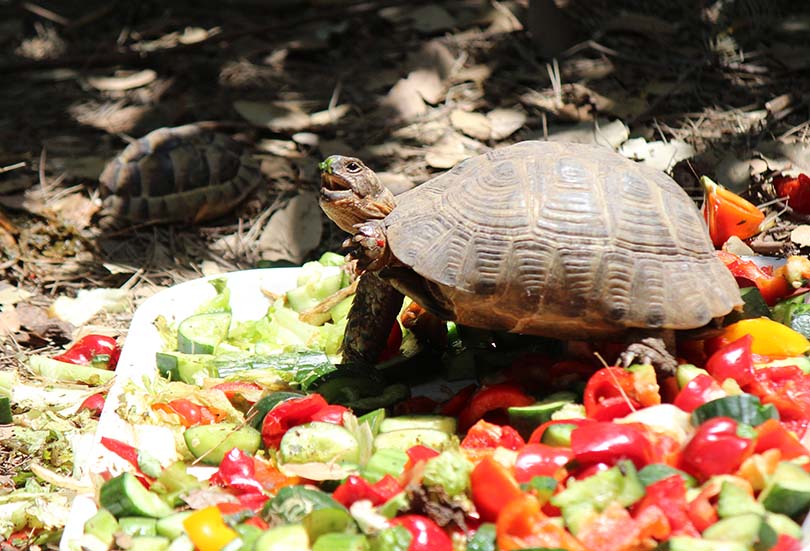
The Best Types of Pickles to Feed Your Pet Turtle
The best type of pickle to feed your turtle is one that hasn’t been brined—essentially, a cucumber. Cucumbers that are not soaked in vinegar, salt, and spices are the safest for your turtle because they’re in their natural state. They have little to no salt and are full of water, which helps with hydration. Some turtles love cucumbers and pickles, while others don’t.
Don’t force your turtle to eat these foods if they don’t enjoy them. Also, remember that cucumbers, like pickles, should not be a large part of your turtle’s diet. While cucumbers are gentler on a turtle’s digestive tract, they should still only make up a small percentage of their diet and should only be a weekly snack or treat at most.

Other Fruits & Veggies That Your Turtle Can Eat
Cucumbers and pickles are not the only plant foods that you can feed your turtle as part of a healthy overall diet. No fruit or vegetable should be the predominant source of calories for your turtle, but a variety of them can be part of a nutritious diet that meets all your pet’s needs.
- Apples
- Blueberries
- Strawberries
- Pears
- Corn
- Lettuce
- Kale
- Collard greens
- Carrots
- Squash
- Green beans
Your pet turtle is likely to enjoy at least a few of these foods, though likely not all of them. It depends on their personal preferences and their unique taste and texture palate.
Conclusion
It’s fine for your pet turtle to eat a bite or two of a pickle every once in a while. However, it is not recommended you feed pickles but rather offer other fresh fruits and veggies. Cucumbers are better options than pickles and remember to check the nutrient requirements for the type of turtle that you have as they do vary by species.
See Also:
- Can Turtles Eat Grass? Vet-Reviewed Facts & Safety Guide
- Can Turtles Eat Onions? Vet Approved Facts & Safety Guide
Featured Image Credit: ha11ok, Pixabay
